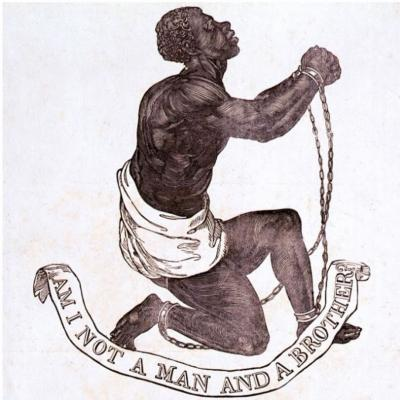There were many ways slavery was argued in America. Proslavery people would argue that slaves were property and therefore owning slaves was a constitutional right. Antislavery people would argue that owning slaves was morally wrong because slaves were also human. However, one thing both sides had in common was their use of the Bible to justify slavery. Some might question how one text can support having slaves and ending slavery at the same, which is why we’ll be exploring this topic in this blog post.
Bible arguments against slavery
Many who argued that Bible was
against slavery used the Bible’s general principles to justify their
argument. Arguments against slavery
would include general rules of thumb like the ten commandments or quote verses
such as Luke 6:31 “Do unto others as you would have others do unto you”. General rules such as this one begin to show
the Bible is against slavery because Americans would not dare enslave
themselves or treat anyone like them as they treat their slaves. Quotes like
these capture the overall essence and concepts used in the Bible.
One Abolitionist that used the
overall concept of the Bible against slavery to her advantage was Susan B
Anthony, in her speech make the slave's case our own. She references (Mt 22:39)
“could we but make the slave our neighbor and love him as ourselves”, along
with (Heb 13:3) “could we but feel for the slave, as bound with him”. In these
two quotes, Susan B Anthony slightly changes these verses to ask her audience why
these statements in the bible do not apply to slaves just as much as they do to
white people.
General principles like the ones used by Susan B Anthony are known better as morals and ethics or simply knowing right from wrong. However, since most morals were based on teachings of the Bible many people assumed that if slavery felt wrong based on their own morals, then the Bible would never support slavery. Therefore, they used the Bible’s overall main idea to create a valid argument for why the bible was against slavery.
Bible arguments for slavery
Instead of general principles and
morals pulled from the Bible, arguments in favor of slavery listed specific
moments where slavery was used along with the absence of slavery in the Bible.
Many people that argue the bible supports slavery point to the fact that God
had ordained slavery and Jesus had never spoken against it. They believe that
if slavery had been against the teachings of the Bible, then Jesus would have
spoken out against it during his time on earth. Since slavery has been around
since the beginning of time if God truly had an issue with it then he would
have condemned the practice in the bible.
Another argument that could be used
is Paul’s statement where he gives describes the relationship between slaves
and slaveowners 6:5: Ephesians “Bondservants, obey your earthly masters with
fear and trembling, with a sincere heart, as you would Christ.” This statement
not only shows that slavery was in the bible, but it also had certain
guidelines on how slavery should be handled. According to both of these
examples, the bible does not condemn slavery and even mentions that slaves
should treat their masters as they would Christ.
Conclusion
Ultimately the argument is not
entirely based on facts, but instead on your interpretation of the bible. Based
on both sides of the argument you can tell they both have evidence from the
bible that supports their points. The reason why both sides can be justified is
because the bible is a book of ethics that leaves its meaning up to the
interpretation of the people who read it. Meaning the bible supports both sides
of the argument, but where you stand morally determines whether you believe the
bible supports slavery or not.







No comments:
Post a Comment